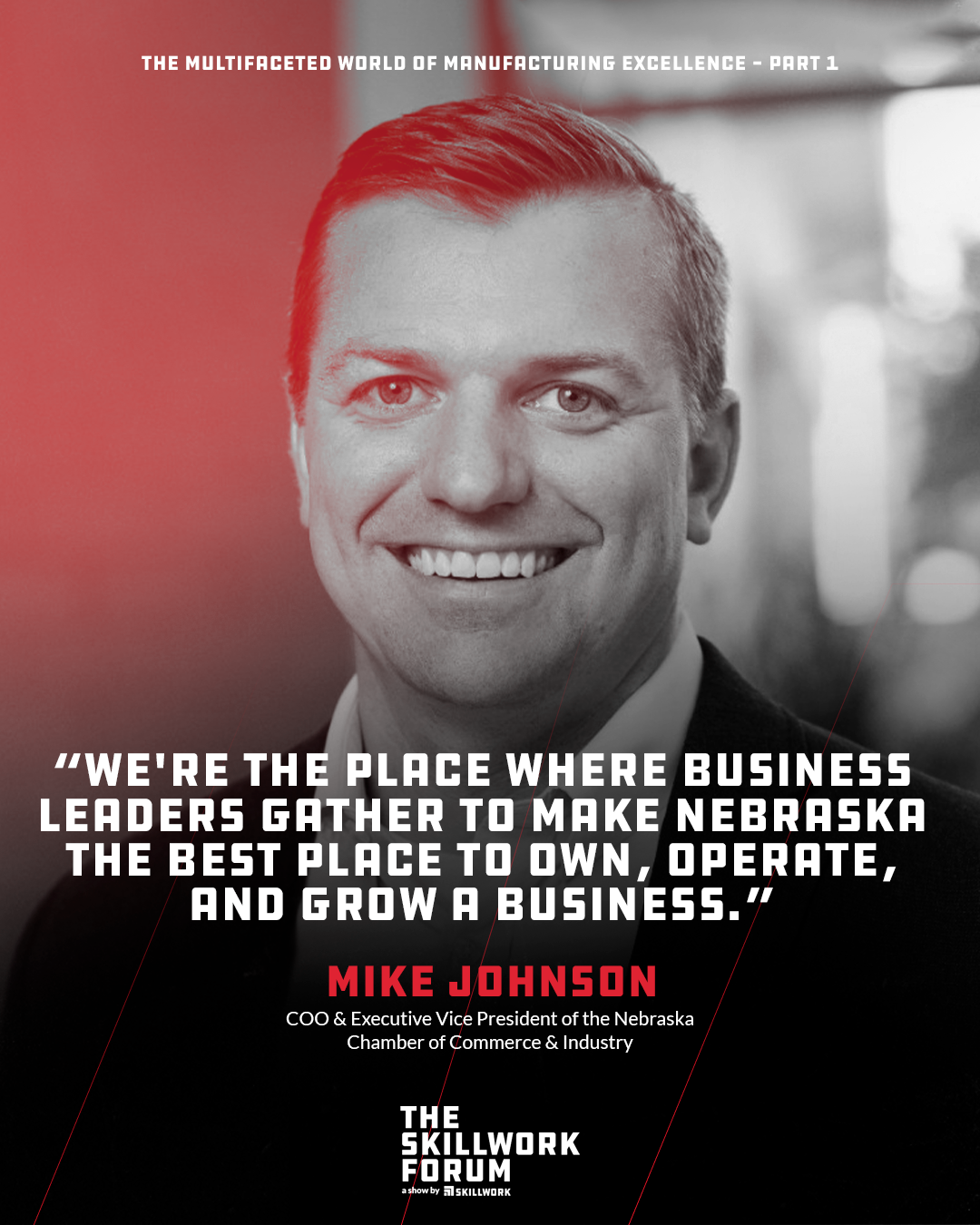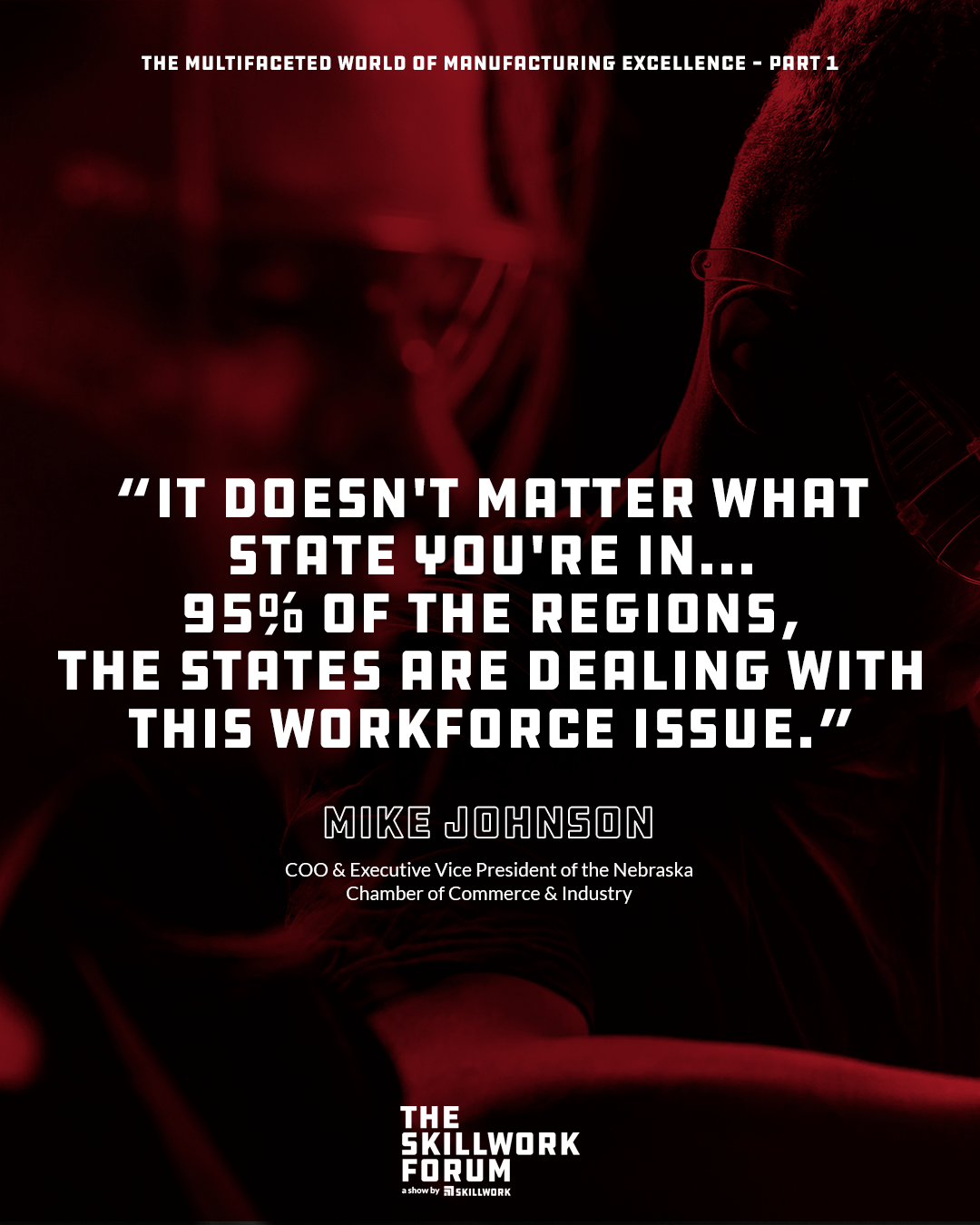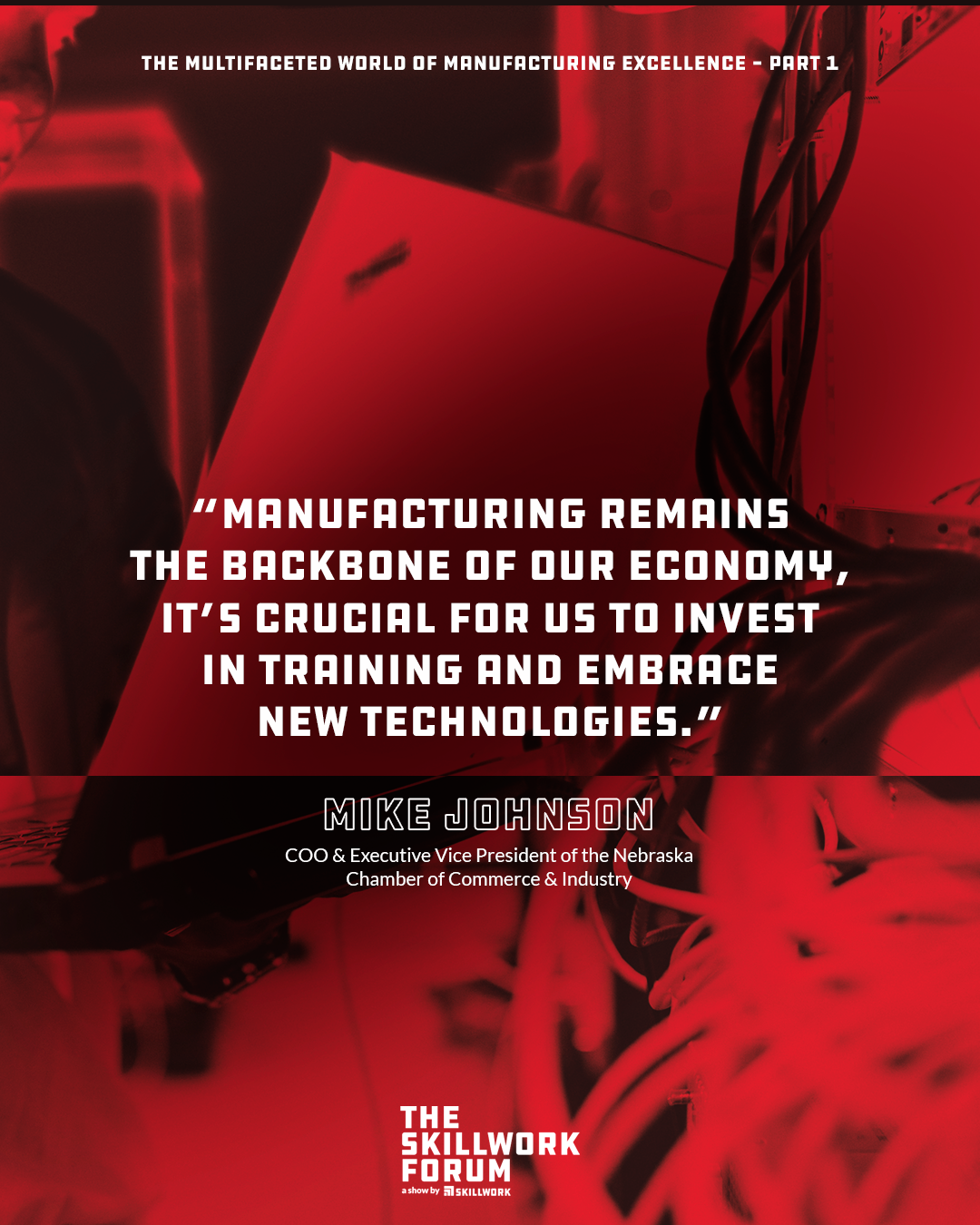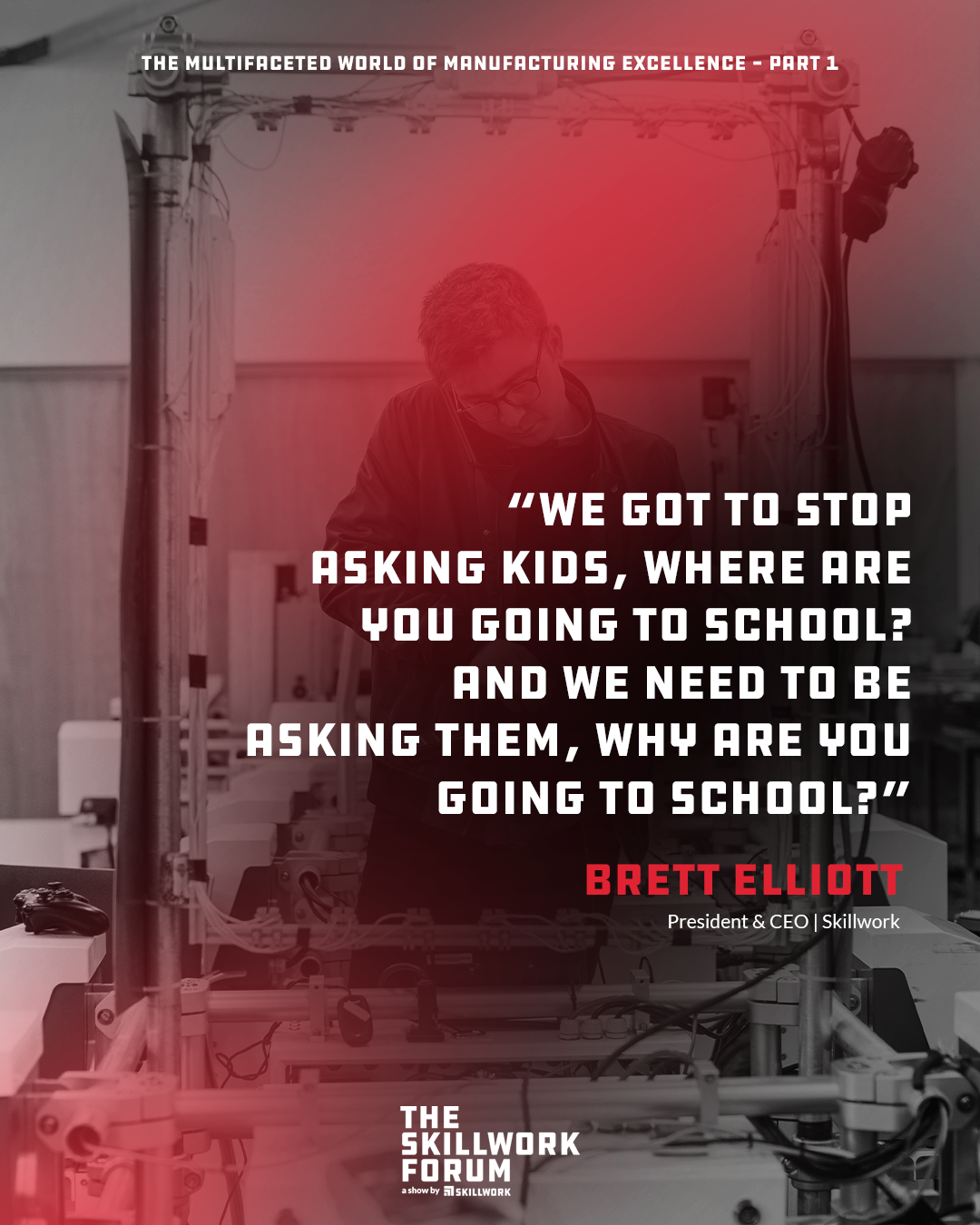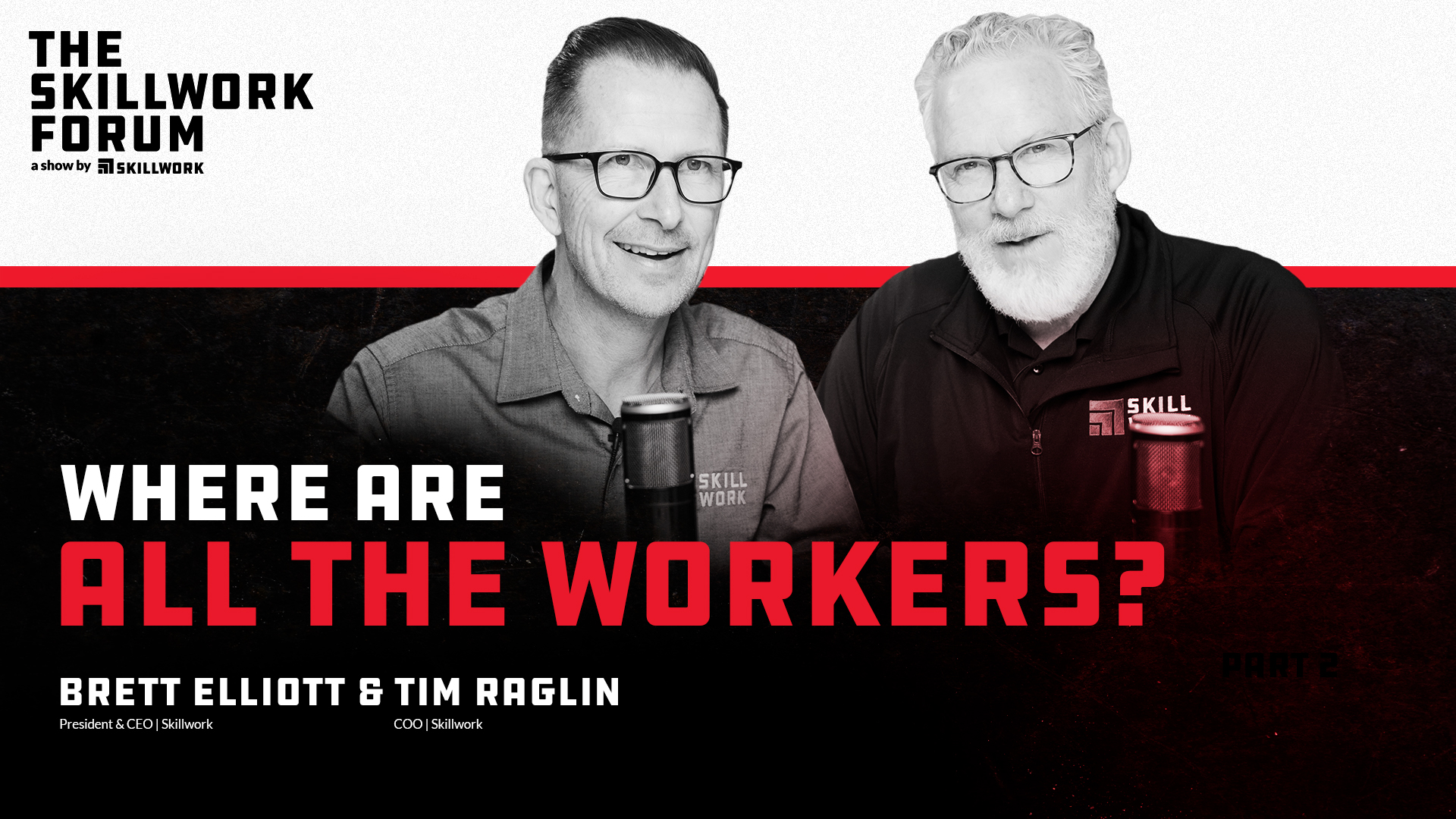The Multifaceted World of Manufacturing Excellence - with Mike Johnson - Part 1
If you desire, you can listen to this episode on Spotify.
We live in a world increasingly driven by technology and automation - leaving a shortage of skilled workers and the conditions over the past few years haven’t helped. The manufacturing industry especially suffered a significant blow, losing about 1.4 million jobs during the pandemic. Since then, it’s struggled to fill vacancies, with 693,000 open jobs as of March 2023.
Skilled trades education is more important than ever, with jobs in manufacturing and similar industries continuing to draw high salaries and long-term stability.
Yet, many companies are still having trouble recruiting skilled trades workers - and the millennials skills gap shows just how broad this divide is. Amid a concerning college student dropout rate, it's clear that the traditional four-year degree isn't the only route to success - and Skillwork is leading the conversation on how to make trades and other technical skills more attractive to the next generation of workers.
We sat down with Mike Johnson, the COO and Executive Vice President of Manufacturing for the Nebraska Chamber of Commerce, on the latest episode of The Skillwork Forum to discuss trades as viable career options after high school.
Let’s delve into how the Nebraska Chamber of Commerce is bridging the gap between education and industry, why filling jobs in manufacturing is a pressing need and innovative approaches to recruiting skilled trades workers. We'll also explore how a skilled trades education can serve as a stepping stone for climbing the professional ladder.
The State Chamber of Commerce's Role in Aiding Skilled Trades Education
Mike shared that one of the primary tasks of the Chamber is to act as a bridge between educational institutions and industries, with a particular focus on the skilled trades labor shortage. We spoke of the goal to align marketable skills with current and future job openings, making it easier for companies to find the right talent and for individuals to secure stable employment.
In particular, Mike, elaborated on the need for recruiting skilled trades workers and emphasized the importance of promoting how to get a job in manufacturing at an earlier stage - even as early as middle school. Taking a proactive approach aims to highlight valuable trades to learn at an early age and help students understand how to get into the trades without a four-year college degree.
The Need To Fill Jobs in Manufacturing
Mike makes it abundantly clear: more young workers need to understand the benefits of skilled trade careers.
Manufacturing is an industry often overlooked despite its potential for high earning and career growth. This misconception has contributed to a skilled trades labor shortage and a shortage of skilled workers in the manufacturing sector. A rising college student dropout rate makes the need for other options even more pressing.
The Misconception About Manufacturing Jobs
So, why is there such a skilled trades labor shortage when the benefits of skilled trade careers are so lucrative?
One of the industry's significant challenges is the outdated perception of manufacturing jobs. Many still believe that these roles are menial or low-paying, which couldn't be further from the truth.
In reality, manufacturing offers valuable trades to learn and a wide range of career options after high school. Mike emphasized that the industry is "so vast and varied" that anyone can find a rewarding path, whether in machine repair, operation, sales, HR, accounting, or leadership.
The Ripple Effect of Unfilled Jobs
A lack of interest in trades for young adults has a ripple effect across the entire industry. Many of these leading trades aren’t just specialized jobs - they incorporate key life skills for millennials such as problem-solving, teamwork, and time management, which are universally valuable, both professionally and personally.
These trades, therefore, are not just jobs; they’re pathways to self-sufficiency and well-rounded development. Thus, the skilled trades labor shortage is, in turn, causing a millennials skills gap.
The answer may lie in helping more students understand how to choose a career after high school that values hands-on work.
This includes providing more opportunities for career exploration and education in the trades such as carpentry, plumbing, electric, automotive repair, and welding. By exposing students to different career pathways while still in school, the newer generations can develop a sense of purpose and make the most informed decisions for their future.
Recruiting Skilled Trades Workers
Traditional recruitment methods might not be as effective as they once were – especially given the modern complexities of the job market and the urgency of the skilled trades labor shortage. What’s needed is a change in how businesses and communities recruit and retain skilled trades workers.
- Start Early with Career Guidance: Most high school students aren't adequately informed about alternatives to four-year colleges. The key is to start early by introducing students to different career pathways while still in school. This could include allowing them to explore welding and other skilled trades through on-the-job projects, internships, or job shadowing opportunities.
- Ask the Right Questions: Rather than asking, "Where are you going to college?" consider asking, "Why are you going to school, and what for?" This shifts the focus from just the academic environment to actual career goals and marketable skills.
- Promote the Growth Ladder: Often, the focus is solely on the starting wage. Instead, highlight the potential for wage growth and varied career paths within the industry. Make it clear that skilled trades can lead to lucrative and fulfilling career journeys.
- Broaden the Appeal: Manufacturing and trades are not just about manual labor. Highlight the range of roles available, from repair to operations to leadership, and even HR, accounting, and sales roles. Authentic testimonials from those who have successfully built careers in skilled trades can be a powerful tool to bridge the millennials' skills gap.
- Highlight Staying Power: Emphasize the resilience and long-term stability of the industry, especially when talking to young adults who are skeptical or uncertain about their future in an ever-changing job market.
- Promote Perkins Funding and Other Incentives: Explore how initiatives like Perkins funding can support vocational education and training, making it financially easier for students to enter the trades.
Conversations That Spark Change
Our discussion in this podcast episode brings to light the challenges and opportunities within the world of skilled trades and manufacturing. While there are increasing options for addressing the shortage, there's still an urgent need to reevaluate our approaches to recruiting skilled trades workers.
We can't just hope for the best; we need to take actionable steps that help fill the gaps. Finding the right partner can help do just that.
Interested in diving deeper into the complex world of skilled trades, manufacturing, and the future of work? Looking to recruit more workers with skilled trades education? Don't miss out on these important conversations by tuning in to episodes from the Skillwork Forum!